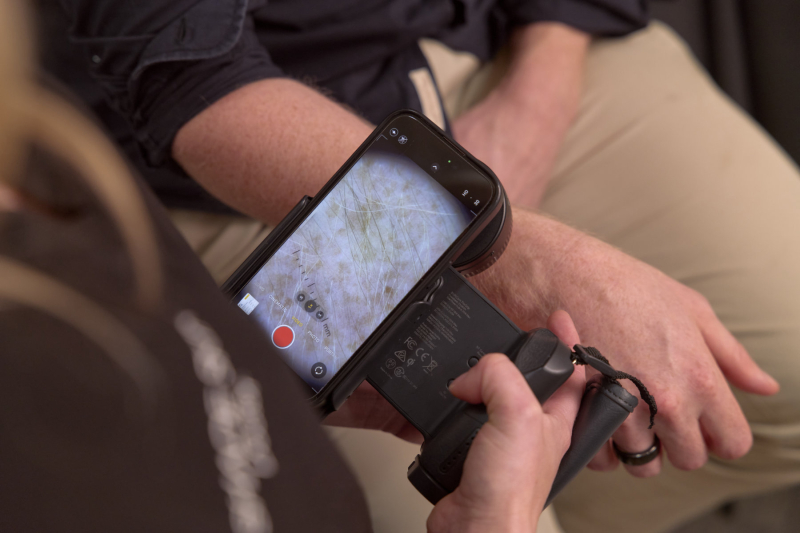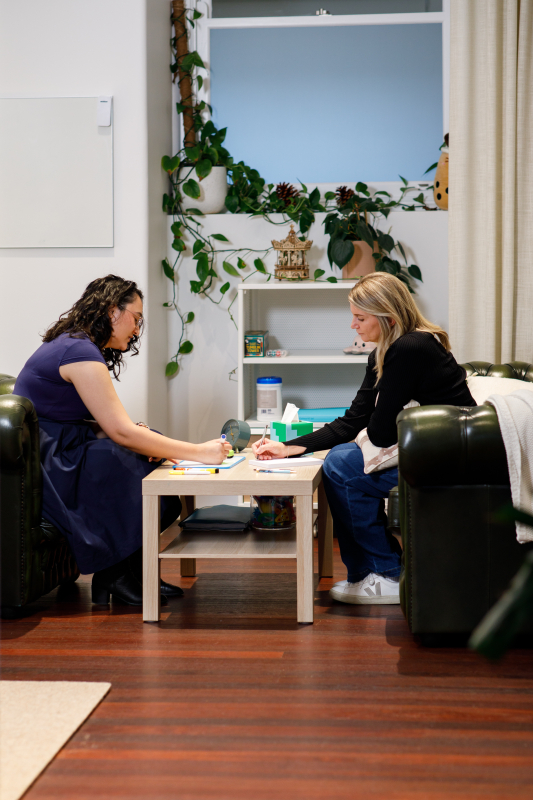Most of us desire to be kind, loving, fair, supportive, and open partners. However, it is common to find ourselves behaving in ways that contradict these values when our relationships become tense, frustrating, or painful.
Andrew Duirs, one of our Registered Psychologists at Headway, uses Acceptance and Commitment Therapy (ACT) to offer a sensitive and practical framework for bridging the gap between our desire for healthy, safe relationships and behaviours that are harmful and hurtful. ACT does not focus on eliminating painful thoughts and feelings in relationships. Instead, the goal is to help us identify what matters most and to support us in being that person, even when we feel hurt, bruised, or stuck. Working with Andrew involves being guided through three stages of relationship therapy.
Stage 1: Noticing what is not working
Although most of us want kind, loving, and supportive relationships, we often find ourselves stuck in behaviours that do not work. For example, we may avoid expressing affection for fear of rejection or suppress apologies when we know we have been hurtful. These patterns of avoidance may offer short-term protection, but they ultimately lead to growing distance and a sense of coldness between partners. Similarly, we might resort to anger or force to achieve our goals or regain a sense of control, but coercion is neither kind nor supportive and often results in increased hurt and frustration. ACT first encourages us to pay attention to what is not working in our relationships. By exploring these ineffective behaviours and their impact on both us and our relationship, we can recognise how far we have drifted from our core values.
In relationship therapy using an ACT approach, Andrew will start by taking time to explore and understand the things that feel most difficult and cause you and your partner the most unhappiness or concern. This can be one of the most challenging parts of relationship therapy, as it can bring up painful memories and emotions. However, it is one of the most critical steps, as it helps us understand what is not working well, how it is impacting each individual in the relationship, and that doing the same things repeatedly increases stress and anxiety. As we pay more attention to the full impact of things that are not working in our relationships, we also have an opportunity to assess our level of willingness to try new things that might unlock the stalemate we have found ourselves in.
Stage 2: Getting back to what truly matters
Imagine your partner giving a speech about you at a milestone anniversary celebration, such as your 50th wedding anniversary. What would you hope your partner would say? ACT guides us in identifying what is most important to us. This is a deeply personal process that helps distinguish our values from the expectations of others, including family, friends, colleagues, society, and even our partners. When we discover what resonates most with us, these values serve as our compass, guiding our actions.
To identify what matters to you most, Andrew will pay close attention to how you describe your experiences, looking for words and emotions that reveal that something is important to you. Our emotions are necessary signals that tell us something is impacting us. Therapy can help you pay attention to what you are feeling and reveal what is most important to you in your relationships. You might also be asked to complete exercises at home to help you reflect on different areas of your life and how close or far you are living from your values. Andrew might invite you to practice sharing what is important to you with each other in session and at different times in your everyday life. He will encourage you to be creative in communicating what matters to you, whether through writing, sharing meaningful songs, or demonstrating the important things in ways that make sense in your relationship.
Usually, people come to therapy when their relationships are feeling very difficult to manage, and at times, a lot of energy is going into just surviving each day. Value-focused activities can help couples take a break from focusing on the difficulties in the relationship and intentionally help each person better understand what is important to them.
Stage 3: Taking small first steps
When our relationships are struggling, we can realign ourselves with what matters most. ACT helps us identify ways to change how we relate to others, guided by our core values rather than being dictated by our current thoughts and feelings. For example, we can reconnect with the kindness, openness, and care that are part of who we are, even when others’ actions might make that more complicated to access. Although taking small steps toward living in alignment with our values can be challenging, it helps us build more fulfilling and meaningful connections.
A central aspect of ACT is taking action, doing something that will move us closer to what we truly want and value. In therapy, this is sometimes called exposure: trying something different in an intentional way. Doing something differently, no matter how small, can help us get unstuck from the repetitive patterns of behaviour that aren’t working and ultimately are likely to be making things worse in the long term.
Andrew refers to these actions as “behavioural experiments” that you can try in therapy and with each other in between therapy sessions. Like any experiment, these new actions are small tests to see whether a different approach works better. You are never locked into an experiment. Behavioural experiments are simply an opportunity to try something different and see if it improves our relationship. For example, you might make a small change in your routine when you arrive home from work and notice how this impacts your partner; you might practice using clarification and validation when your partner is talking to you; or you might commit to daily morning exercise and notice how this impacts you and how you interact with your partner.
The goal of taking small steps and trying new behaviours with each other is not to arrive at a specific endpoint, but to notice what happens when you choose to try something different. Deciding to do something different rather than long-repeated patterns can bring a sense of freedom, a feeling of being less controlled by our thoughts and feelings, less reactive to each other and less stuck, a feeling of being more able to take our time in responding, improved willingness to negotiate, and an increased ability to be kind, even when the challenges in our relationship have not shifted very much.
If you and your partner are considering relationship therapy and would like to explore using an ACT approach with Andrew Duirs, please contact us at Headway Psychology on (08) 9226 4489 or via email at referrals@headwaypsych.com.au.



